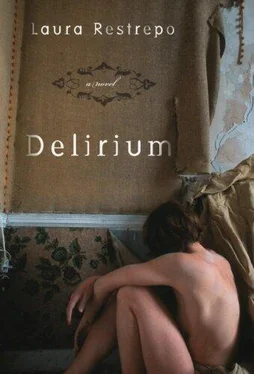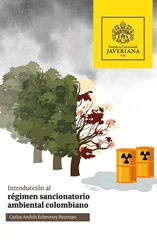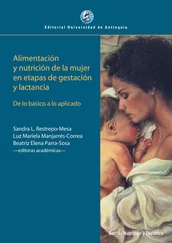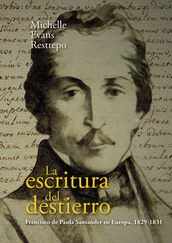Now melancholy instead of frenzied, he explained to her that there were basically two kinds of noises that plagued him and drove him to distraction, or that actually there were many but these two were the worst and most persistent, one sibilant and sly, like the sound an old woman with no teeth might make whispering an interminable secret in your ear, and the other rasping, sometimes like the purr of a cat and sometimes mechanical, like the clatter of a waterwheel or a millstone. When the whispering noise takes possession of my ears I can compose but I can’t think, and with the other noise the opposite occurs. It’s all in your head, Nicholas, go to bed, darling, I don’t hear any old ladies or cats, and then he left the room cursing her and slamming the door.
The next day at breakfast, as the young guest busied himself serving oatmeal to Sofi and Eugenia, the couple’s two daughters, or rather the two surviving after the early deaths of five other children, Nicholas repeated at the table the same description he’d given Blanca the night before of his auditory woes. The difference, he says, is that now the rasping noise doesn’t sound like a waterwheel or a millstone but like a chair being dragged along a very long passageway. You’re right, Professor, Farax replies in that disturbing voice of a child who minute by minute is leaving childhood behind, and who at the instant he speaks is already a bit more of a man than he was when he was serving the oatmeal, You’re right, Maestro, that’s why I go high up into the mountains, where I seek the inner and outer peace I’ve lost. These words seem wise and profound to Nicholas, who has the look on his face of someone who has heard the ultimate truth revealed, and he smiles placidly. You do understand me, he whispers to Farax, you and I understand each other, a statement that Blanca interprets as an indirect reproach for the clumsy words she spoke a few hours earlier on the same subject, and for the first time she experiences what from then on will become a constant, that anything she says will sound coarse to her husband when contrasted with the angelic and extraordinary pronouncements that issue from Farax’s lips.
A few days later it’s Blanca’s thirty-fourth birthday, and the trio and the two children celebrate what is unanimously pronounced a perfect day, a time that Nicholas describes in his diary in English as “domestic bliss,” spent walking along the river, collectively analyzing a Bach fugue, taking turns reading aloud passages from Shakespeare and Goethe. Heaven, as Blanca put it, smiled on them again that day, enabling Nicholas to rise in the morning with the swelling of his body sufficiently reduced so that his good looks were partially restored and to wake Blanca with a bouquet of daisies that he’d cut himself from around the stone fountain, and also that night at dinner to give her a pearl necklace with a note reading, Take these, my tears. Enraptured by this message, Blanca ran to her diary and wrote “Am I not the happiest woman in the world?”, but something bad, something she didn’t want to record, must have happened later on in the festivities, because the next sentence in her diary, written in different ink now and in a different spirit, says “Today I turned thirty-four and I was immensely happy, and yet the house is plunged into a strange silence…” Nicholas’s diary gives no clues to what happened, either; the only thing set down on the page corresponding to that date is “Today, which is her birthday, Blanca is wearing her hair up, gathered on top of her head, which accentuates the elegant shape of her face and makes me desire her greatly. I ask myself how it’s possible that such a woman could love me.”

THE NOTE THAT WAS slipped under the door of my cubicle was written in the kind of adolescent, absurdly rounded handwriting in which the i is topped with a horrible little circle instead of a dot. I still have that note, and I keep it with me in my wallet because it was the starting point of my relationship with Agustina; this was ten or twelve days after I met her and it went like this, “Professor Aguilar, I’m the person you met the other day at the film society and I need to ask you a favor, which is that I want to write my autobiography but I don’t know how, you may ask whether anything memorable or important has ever happened to me, anything that deserves to be told, and the answer is no, but it happens to be an obsession of mine anyway and I think you could help me with it, since you’re a literature professor, after all.”
Instead of including her telephone number so that I could reply, she gave me her address, and then she continued on in a second paragraph that was even odder than the first, and that kept me awake that night tossing and turning as I tried to gauge the precise degree of her flirtatiousness. What could such a ladi-da girl want with a man like me? Could she really be making a pass at me? “Listen, Professor, before we start working on the autobiography I’d like to see your hands, that’s the first thing I notice in a man, his hands, you don’t know how fascinated I am by men’s hands, when they do fascinate me, of course, because although I always notice them I hardly ever really like them because they’re never the way I imagine them. When we met as we were leaving the film club I couldn’t see yours because you had them in your pockets, so I thought that maybe you could send me a photocopy of your hand, either of the two, really, but make sure it’s both sides, the palm side and the other side, maybe you can tell me what that other side is called, I mean the reverse-palm, but anyway, put your hand in the photocopier like a piece of paper, and make the copy and send it to me, although of course my other fascination is hair, the hair of any mammal but especially the hair of the human male, and when I see a man with nice hair I can hardly stop myself from reaching out to touch it, although actually I couldn’t see your hair either because you were wearing that little black wool cap, I hear that you’re a lefty and I’d like to know why lefties are always wearing stocking caps no matter what the weather’s like, but don’t think I didn’t notice your eyebrows, your eyelashes, and your beard, because I did, and I liked them all because they were silky and thick and dark though I especially liked your mustache, with those little gray hairs that make it glisten, but I realize that asking you to cut a lock of your hair and send it to me would be going too far, so if you’ll let me have that photocopy of your hand and your answer to my other question, I’ll be satisfied, Agustina Londoño.”
In the literature department at the National University there’s only one photocopier, and it’s in the dean’s office, where besides the dean and the students who mill around filling out forms or asking to see their grades, there’s the secretary, Doña Lucerito, a permanent fixture and a nice lady except when it comes to anything having to do with the photocopier, which she presides over with a stinginess maddening to us professors who need to use it, because not only does she give us a reproachful look when we come more than once a week but she also makes us keep track of how much paper we use, which meant that I couldn’t see how I would manage to sneak in and photocopy my hand. But I left my cubicle and strode decisively toward the dean’s office, firmly resolved to succeed and prepared to have it out with the dean or Lucerito herself, or even look like an idiot in front of my students if I had to in order to win the affections of the lady charging me with such strange feats, laughing to myself at the things a gray-haired man in his forties could end up doing clandestinely. My crowning achievement was pressing the buttons with my right hand to take a picture of my left hand, front and back, or reverse-palm, to use the term coined by that strange creature Agustina, and I put the two photocopies into an envelope along with a reply in the negative regarding my collaboration on her autobiography, explaining that it was called autobiography and not plain biography precisely because it was oneself and not anyone else who should write it, and in closing I gambled everything by asking her to meet me the following Sunday in the hydrangea garden in Independence Park at ten thirty in the morning.
Читать дальше













